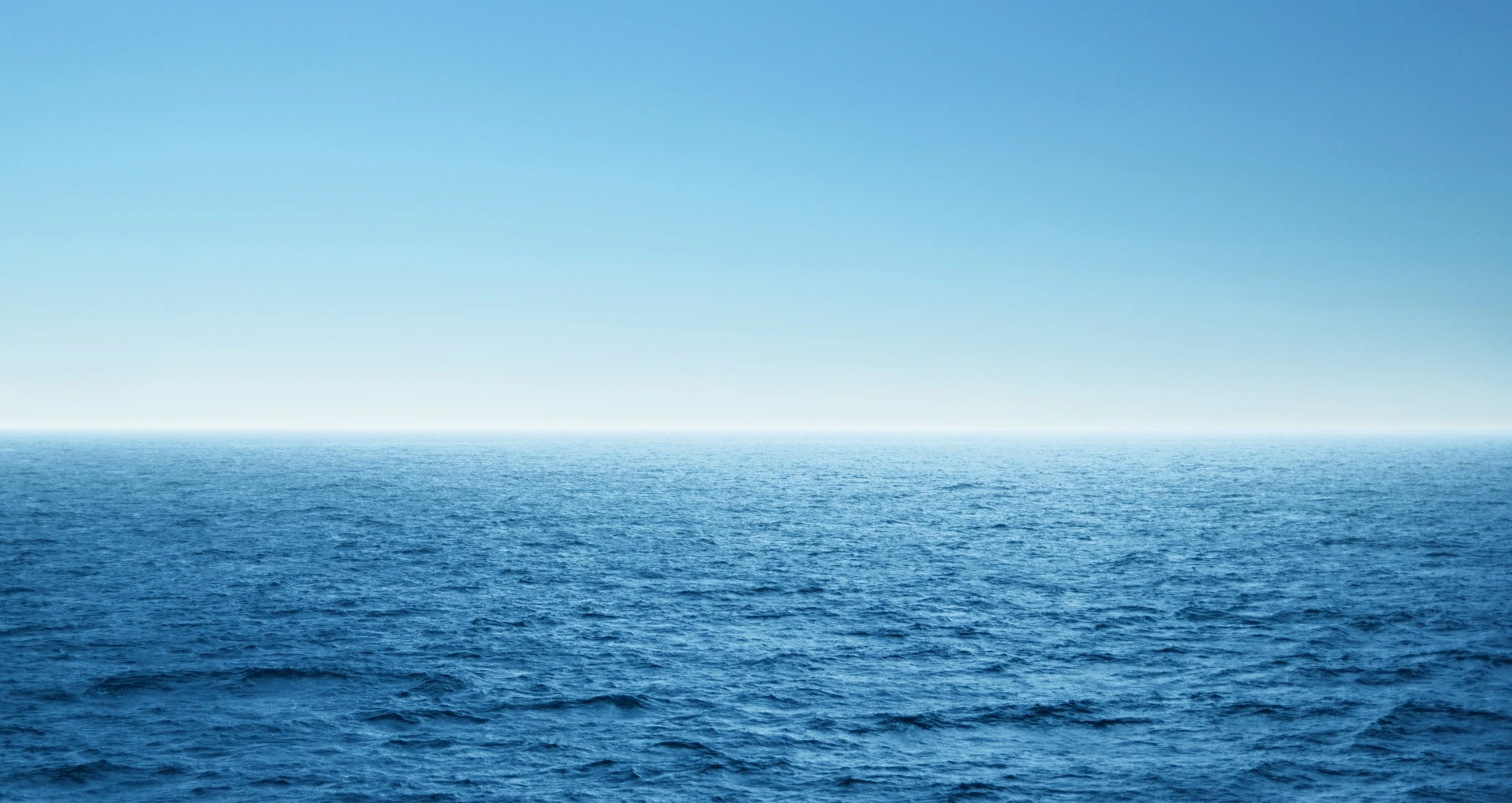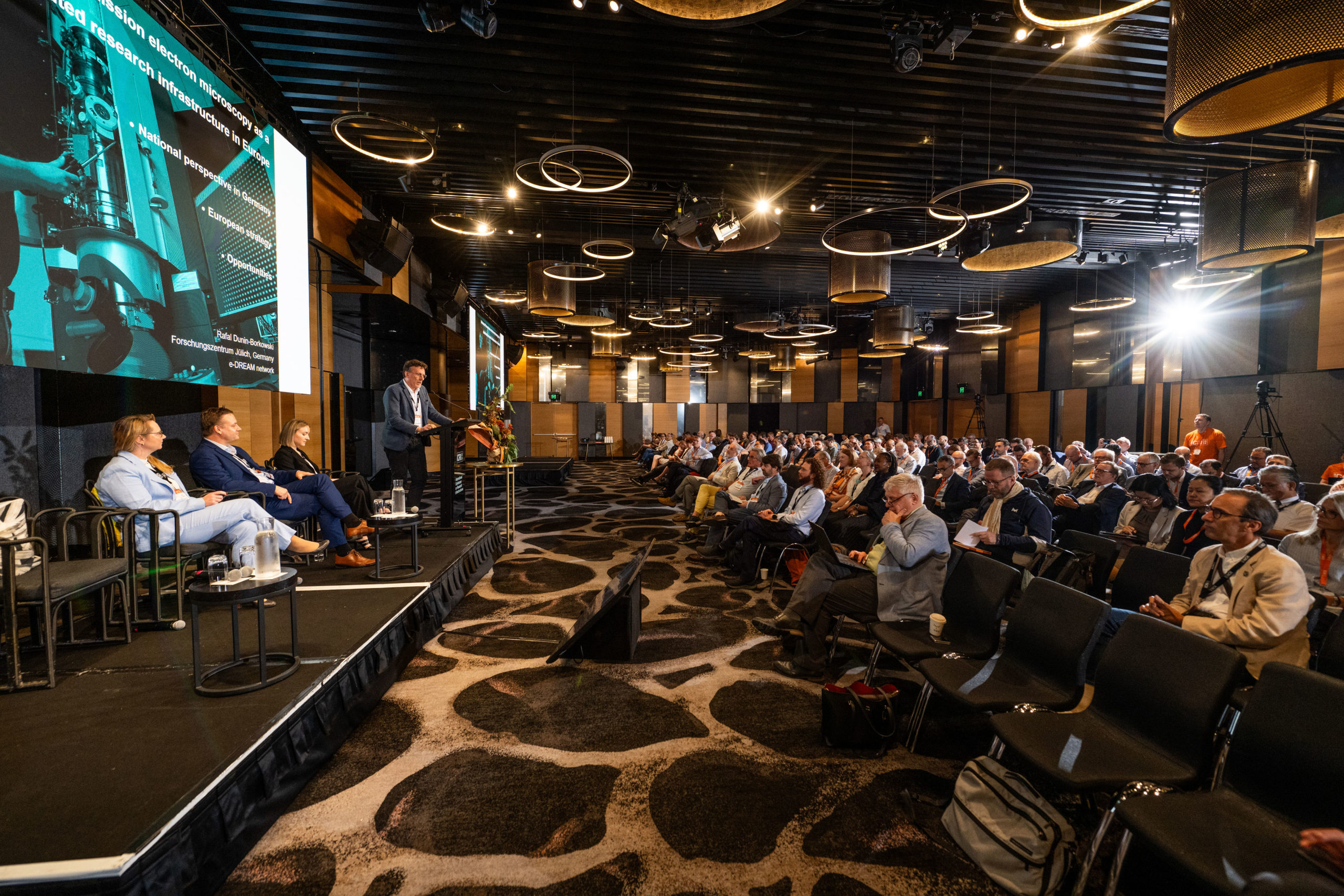The International Conference on Research Infrastructures (ICRI) 2024 served as a key event for the global research infrastructure (RI) community to discuss the role of RIs in tackling some of the world’s most pressing challenges. This year’s conference, held in Brisbane, was especially significant in framing climate change and sustainability as central themes in the global research agenda.
Representatives from the three RIs involved in GEORGE, Euro-Argo, EMSO and ICOS were present at the event in different capacities. Euro-Argo (Yann-Hervé De Roeck) and ICOS (Emmanuel Salmon) discussed the importance of Improving critical ocean and Earth observations. ICOS (Werner Kutsch) offered his perspective on How research infrastructure will address climate challenges over the next 30 years. EMSO (Ingrid Puillat) joined a panel on Empowering RIs for Global Impact: Digital Tools and Collaborative Solutions.
Euro-Argo: Operational application of environmental data is vital
Yann-Hervé De Roeck, Director General of Euro-Argo, expressed his delight in participating in Session 4: Improving Critical Ocean and Earth Observations. This session provided an excellent forum to emphasize the imperative of supporting the operational application of environmental data as a vital complement to research funding.
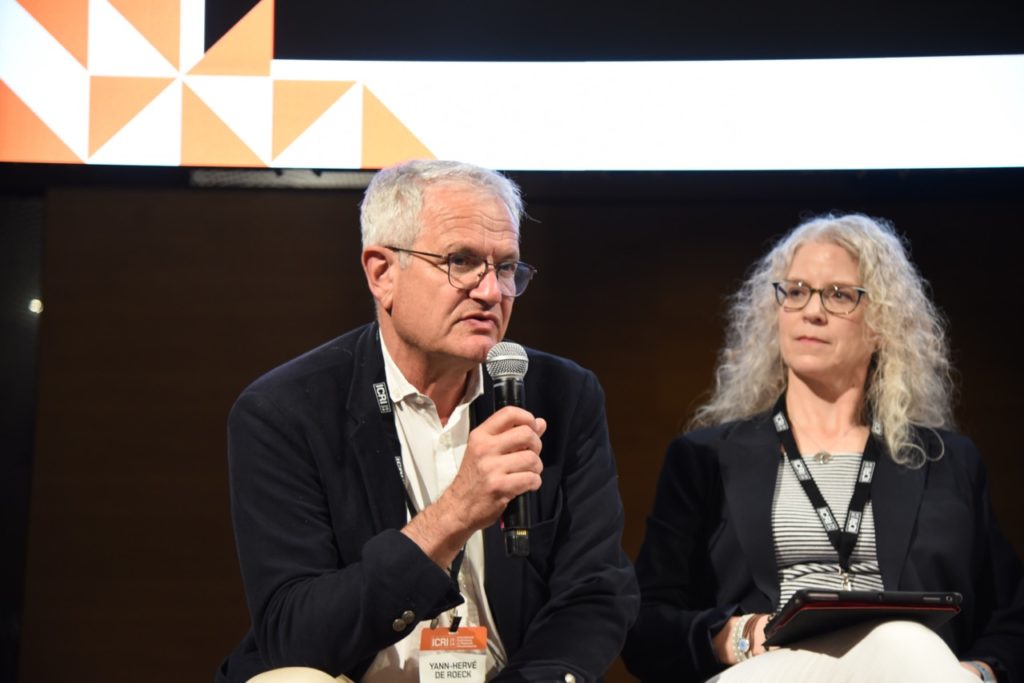
ICOS: We need timely data from continuous long-term observations
ICOS Director General was invited to the event How research infrastructure will address climate challenges over the next 30 years. This panel discussed how global Research Infrastructures (RIs) address climate challenges through monitoring, mitigation, support for decision-makers, and the implementation of global environmental accounting and auditing. Werner Kutsch stressed the importance of long-term observations and openly accessible, quality data.
“Only excellent science brings us forward but the best available science also means that we have to look at the necessary impact. We need timely data from continuous long-term observations and we need to better define the success of climate action”, Werner Kutsch says.
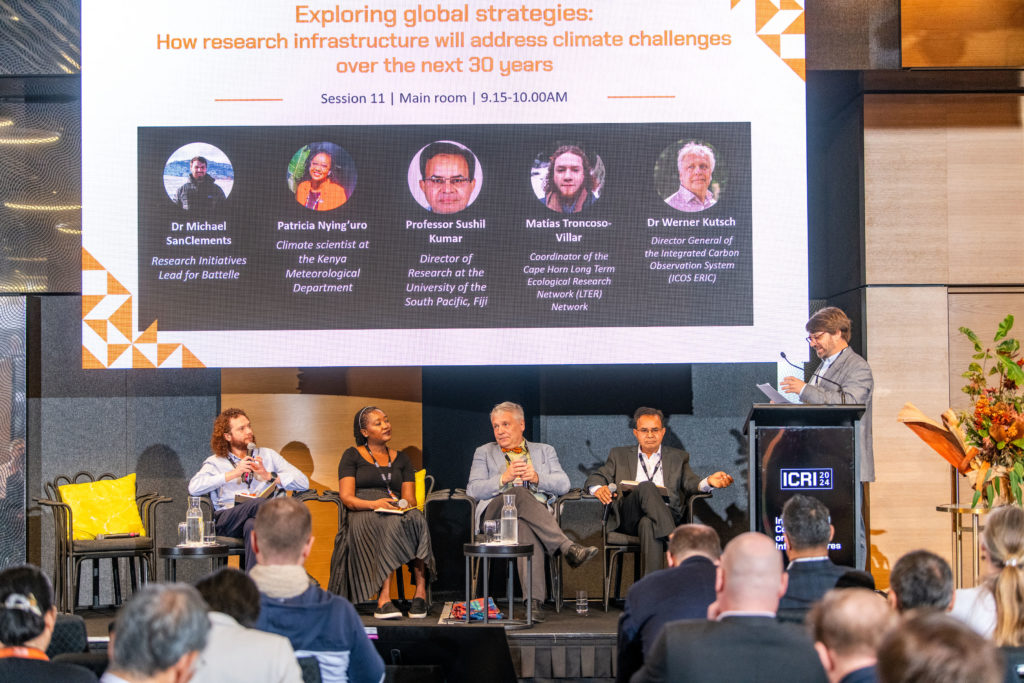
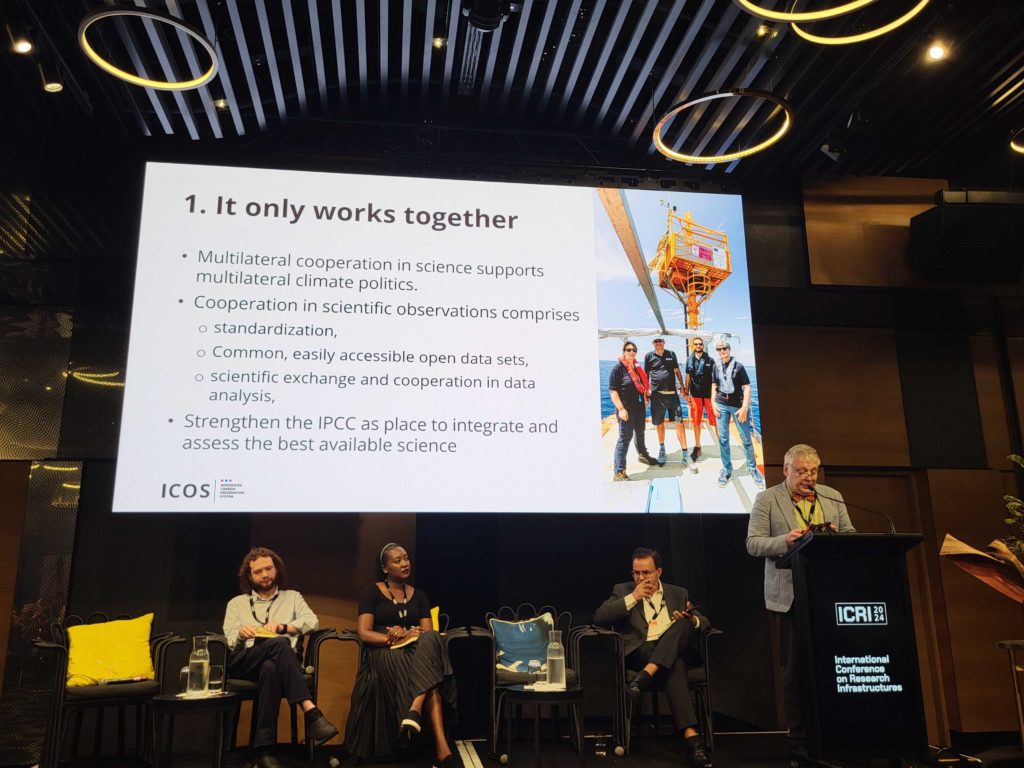
Emmanuel Salmon, Head of Strategy and International Cooperation at ICOS, spoke alongside Euro-Argo’s Yann-Hervé de Roeck on a panel that focused on the importance of ocean and Earth observation. The discussion emphasised the vital role of coastal areas, both from financial and ecological perspectives, and the necessity of joint efforts to preserve them. Emmanuel Salmon highlighted that collaboration between research infrastructures, as well as broader partnerships, is essential for achieving effective and comprehensive observations.
EMSO: AI applications in oceanographic research
During the EGI Foundation Side Event “Empowering Research Infrastructures for Global Impact: Digital Tools and Collaborative Solutions”, within ICRI 2024, EMSO Director General Ingrid Puillat was invited to explore the transformative potential of Artificial Intelligence (AI) in revolutionizing oceanographic research. The event showcased a range of Research infrastructures and projects representing different activities and solutions for digital RI transformation.
Puillat emphasised the significant strides made by EMSO in AI-powered ocean imaging within the Horizon Europe-funded iMagine project, coordinated by the EGI foundation, in which the ERIC is a key participant. “iMagine offers a comprehensive solution, integrating image datasets, cutting-edge AI tools, and proven methodologies for scientific image analysis,” she explained. “EMSO’s contribution to iMagine is multifaceted. Several EMSO observatories, including Ireland’s SmartBay, Spain’s Obsea, and France’s Azores, have developed compelling use cases for ecosystem monitoring. By applying iMagine’s AI tools, these observatories are enhancing video processing and species detection capabilities, streamlining scientific research, with the aim to significantly accelerate the analysis of underwater video data, thereby improving our understanding of marine ecosystems”.

The outcomes of ICRI 2024
The Brisbane Statement, which emerged from ICRI 2024, served as a key outcome of the conference. This statement placed climate change at the forefront of global research priorities and called for stronger international cooperation to address the climate crisis. It highlighted the pivotal role of Research Infrastructures (RIs) in driving climate action, promoting a green transition, and fostering sustainable development through innovation in research.
The Brisbane Statement urged stakeholders to continue strengthening international RI collaborations, ensuring that RIs remain central to global efforts in combating climate change. It also emphasised the need for RIs to contribute to policy development, technological advancements, and the integration of diverse data and perspectives in tackling the interconnected challenges of climate change, health, food security, and sustainable energy.
These objectives align closely with the core mission of the GEORGE project. By advancing ocean observation technologies and improving data integration, the project aims to deepen understanding of the ocean and its critical role in climate change mitigation. GEORGE promotes the integration of RIs by fostering stronger cooperation between Euro-Argo, EMSO, and ICOS. Through projects like GEORGE, the RIs involved in the project can advance their own capabilities and fulfill their purpose to offer long-term observational data for climate action.
Text by Marine Bollard (Euro-Argo), Sara Pero (EMSO) and Maria Luhtaniemi (ICOS). Special thanks to the ENVRI Community for allowing us to use and adapt parts of their text for the text.
Photo credits for the article main image: Joseph Byford.
